Have you ever wondered about the string of numbers that acts like your home address on the internet? Every device connected to the web, from your smartphone to your laptop, has a unique identifier called an IP address. Sometimes, you might come across a strange-looking string like 185.63.253.2pp. This can be confusing, but understanding what it represents is key to grasping how the internet works and how you can protect your digital life. This guide will break down everything you need to know about IP addresses, what 185.63.253.2pp likely means, and why it matters for your online safety and experience. We’ll explore the technical details in a simple way, so you can become more confident navigating the digital world.
Key Takeaways
- An IP address is a unique numerical label assigned to each device connected to a computer network that uses the Internet Protocol for communication.
- The term 185.63.253.2pp is likely an IP address (185.63.253.2) with a typo (“pp”) added at the end.
- Understanding your IP address helps you diagnose network problems, improve online security, and access region-specific content.
- Protecting your IP address is crucial for maintaining your online privacy and preventing potential cyber threats.
What Exactly Is an IP Address?
Think of an IP address as a mailing address for your computer. When you want to send a letter, you need the recipient’s street, city, and zip code. Similarly, when your device wants to receive information from a website, it needs a unique address so the internet knows where to send the data. IP stands for Internet Protocol, which is the set of rules governing how data is sent over the internet. An IP address is a core component of this system, ensuring that data packets—the small chunks of information that make up websites, emails, and videos—reach their correct destination. Without them, the internet would be a chaotic mess of lost information. The term 185.63.253.2pp contains the core elements of one of these addresses.
Every single device connected to the internet has one, including your smart TV, gaming console, and even some home appliances. These addresses are typically managed by your Internet Service Provider (ISP), the company you pay for your internet connection. They assign an IP address to your home router, which then assigns local addresses to all the devices within your home network. This system allows multiple devices to share a single public IP address while still communicating effectively with the outside world.
Deconstructing the Numbers: 185.63.253.2pp
At first glance, 185.63.253.2pp looks like a jumble of numbers and letters. Let’s break it down to understand what it represents. The numerical part, 185.63.253.2, fits the format of a standard IPv4 address. This is the most common type of IP address currently in use.
An IPv4 address consists of four numbers separated by periods. Each number, called an octet, can range from 0 to 255.
- 185: The first octet.
- 63: The second octet.
- 253: The third octet.
- 2: The fourth octet.
The “pp” at the end is not part of a standard IP address format. It is most likely a typo or an accidental addition from a copy-paste error. This is common when people are looking up technical information. So, when we talk about 185.63.253.2pp, we are really focusing on the IP address 185.63.253.2. This address provides specific information about its origin and network.
The Role of Your Internet Service Provider (ISP)
Your Internet Service Provider (ISP)—companies like Comcast, AT&T, or Verizon—plays the most significant role in assigning and managing your IP address. When you sign up for an internet plan, your ISP assigns an IP address to your modem or router. This is your public IP address, which is what the rest of the internet sees. Without this assignment from your ISP, your devices wouldn’t be able to connect to the global network. The address 185.63.253.2pp (referring to the numerical part) would have been assigned by a specific ISP to one of its customers.
ISPs own large blocks of IP addresses, which they then distribute to their subscribers. These addresses can be either static or dynamic. A dynamic IP address changes periodically, sometimes every time you restart your router. Most residential customers have dynamic IPs. A static IP address, on the other hand, remains the same. Businesses often prefer static IPs for hosting websites or running servers, as it provides a consistent address for others to connect to. The type of IP you have affects how you use the internet and what services you can run from your home network.
Dynamic vs. Static IP Addresses
Understanding the difference between dynamic and static IPs is important for any internet user. Here’s a simple comparison:
|
Feature |
Dynamic IP Address |
Static IP Address |
|---|---|---|
|
Assignment |
Changes periodically (assigned by ISP automatically) |
Remains the same unless manually changed |
|
Cost |
Included with standard internet plans |
Usually costs extra |
|
Common Use |
General home internet use, browsing, streaming |
Hosting servers, VPNs, remote access |
|
Security |
Can be more secure as the address changes |
Requires stronger security measures |
Most users who might search for something like 185.63.253.2pp are likely residential users with a dynamic IP address. This is the default for a vast majority of internet plans across the United States.
Why Would Someone Look Up an IP Address?
There are several legitimate reasons why you or someone else might look up an IP address. It’s a common practice for troubleshooting network issues, enhancing security, or simply satisfying curiosity about a particular connection. If you see an unfamiliar IP address like 185.63.253.2 in your logs or security software, you might want to know where it’s coming from.
Common Reasons for an IP Lookup:
- Troubleshooting Network Issues: If you can’t connect to a website, checking its IP address can help determine if the problem is with your network or the site itself.
- Blocking Malicious Activity: If you run a website or server, you might see repeated failed login attempts from a specific IP. You can block this IP to prevent a potential cyberattack.
- Geolocation Services: IP lookups can provide an approximate geographic location (country, city) of the IP address. This is how streaming services know to block content outside of a specific region.
- Verifying Email Sources: The headers of an email contain the IP address of the sender’s server, which can help verify its origin and identify phishing attempts.
So, if you encountered the string 185.63.253.2pp, you were likely trying to find more information about the IP address 185.63.253.2 for one of these reasons.
How to Protect Your IP Address and Online Privacy
Your IP address reveals information about you, including your approximate location and your ISP. While this is necessary for the internet to function, it also poses a privacy risk. Malicious actors can use your IP address to target you with attacks or monitor your online activity. Therefore, protecting your IP address is a crucial step in safeguarding your digital privacy. The concern over who might be using an address like the one in 185.63.253.2pp is a valid one, highlighting the need for privacy.
One of the most effective ways to hide your IP address is by using a Virtual Private Network (VPN). A VPN encrypts your internet traffic and routes it through a server in a location of your choice. This masks your real IP address with the IP address of the VPN server. Another tool is the Tor Browser, which anonymizes your traffic by routing it through a volunteer-run network of relays. For everyday browsing, even a simple proxy server can offer a basic level of IP masking, though with less security than a VPN. For more news and updates on digital security, you can check resources like https://worldupdates.co.uk/.
Understanding IP Geolocation
IP geolocation is the technology used to estimate the real-world geographic location of an IP address. When a tool looks up an address like 185.63.253.2, it cross-references it with databases that map IP blocks to specific regions, cities, and ISPs. It’s important to note that this technology is not 100% accurate. It can typically identify the country and city correctly but cannot pinpoint a specific street address.
Geolocation is used for various purposes:
- Content Customization: Websites can show you content in your local language or currency.
- Digital Rights Management: Streaming services like Netflix and Hulu use geolocation to enforce regional content restrictions.
- Fraud Prevention: Banks and e-commerce sites use it to flag suspicious transactions that originate from an unusual location.
- Targeted Advertising: Marketers use location data to show you ads relevant to your area.
While useful, the existence of this technology is another reason why people are interested in privacy tools that can mask their IP’s true location.
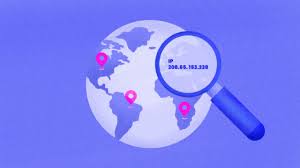
The Future: From IPv4 to IPv6
The IP address format we’ve been discussing, IPv4, was created in the early days of the internet. It allows for roughly 4.3 billion unique addresses. With the explosive growth of internet-connected devices, we are running out of available IPv4 addresses. This shortage led to the development of a new version: IPv6. IPv6 uses a much longer address format and provides a virtually limitless number of unique addresses (340 undecillion, or 3.4×10³⁸).
The transition to IPv6 has been slow but is steadily progressing. Most modern devices and operating systems support IPv6, and ISPs are gradually rolling it out. For the average user, this transition will happen seamlessly in the background. In the future, instead of a string like 185.63.253.2pp, you might see a much more complex alphanumeric IPv6 address. This new system ensures the internet can continue to grow for generations to come, connecting billions more devices to the global network.
Conclusion
Understanding what an IP address is and why it matters is essential for every internet user. A string like 185.63.253.2pp may seem technical and confusing, but by breaking it down, we see it’s simply a standard IP address with a minor typo. This digital address is fundamental to how the internet operates, directing traffic and connecting you to the online world. It helps in diagnosing issues, enables personalized content, and, most importantly, serves as a marker of your online presence. By learning how to protect your IP address using tools like VPNs, you can take a significant step toward securing your digital privacy and enjoying a safer online experience.
Frequently Asked Questions (FAQ)
Q1: Can someone find my exact location from my IP address?
No, an IP address can only reveal your approximate location, such as the city or region you are in, and your Internet Service Provider. It cannot be used to find your specific street address or home.
Q2: Is looking up someone’s IP address illegal?
No, looking up an IP address is not illegal. IP addresses are public information, and tools for looking them up are widely available. However, using that information for malicious activities like hacking or harassment is illegal.
Q3: Does my IP address change?
Most residential internet users have a dynamic IP address, which is reassigned by their ISP periodically. This means your IP address does change over time. Businesses or users who need a consistent address can pay for a static IP address.
Q4: What is the difference between a public and a private IP address?
A public IP address is the address assigned by your ISP that is visible to the entire internet. A private IP address is an address used within your local network (e.g., your home) to allow devices like your phone, laptop, and printer to communicate with each other through your router.
Q5: Why is the term “185.63.253.2pp” not a valid IP address?
A standard IPv4 address consists of four numbers between 0 and 255, separated by periods. The “pp” at the end of 185.63.253.2pp is not a valid character in this format, which is why it is considered a typo or an error. The actual IP address is 185.63.253.2.
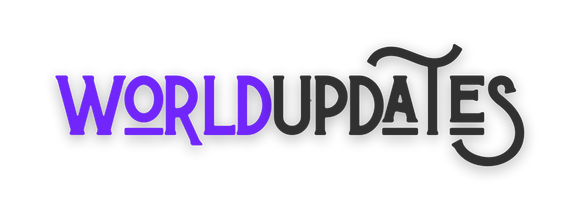
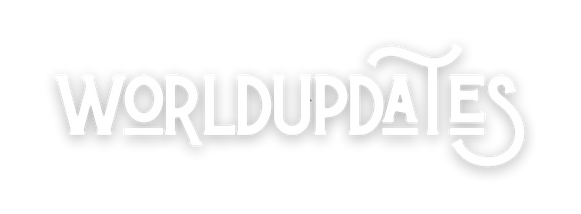
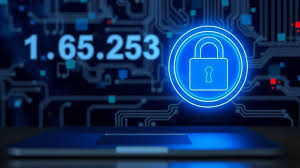







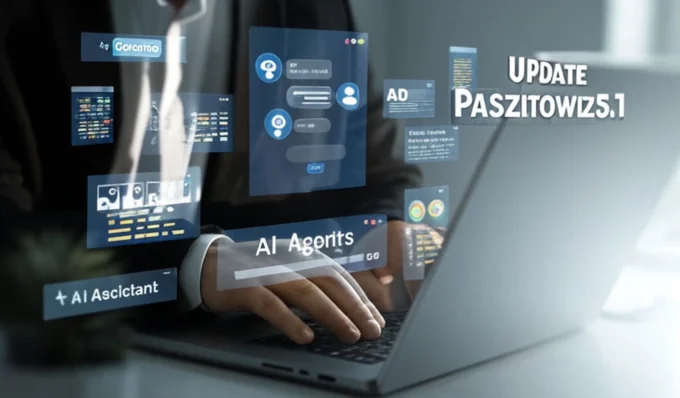




Leave a comment